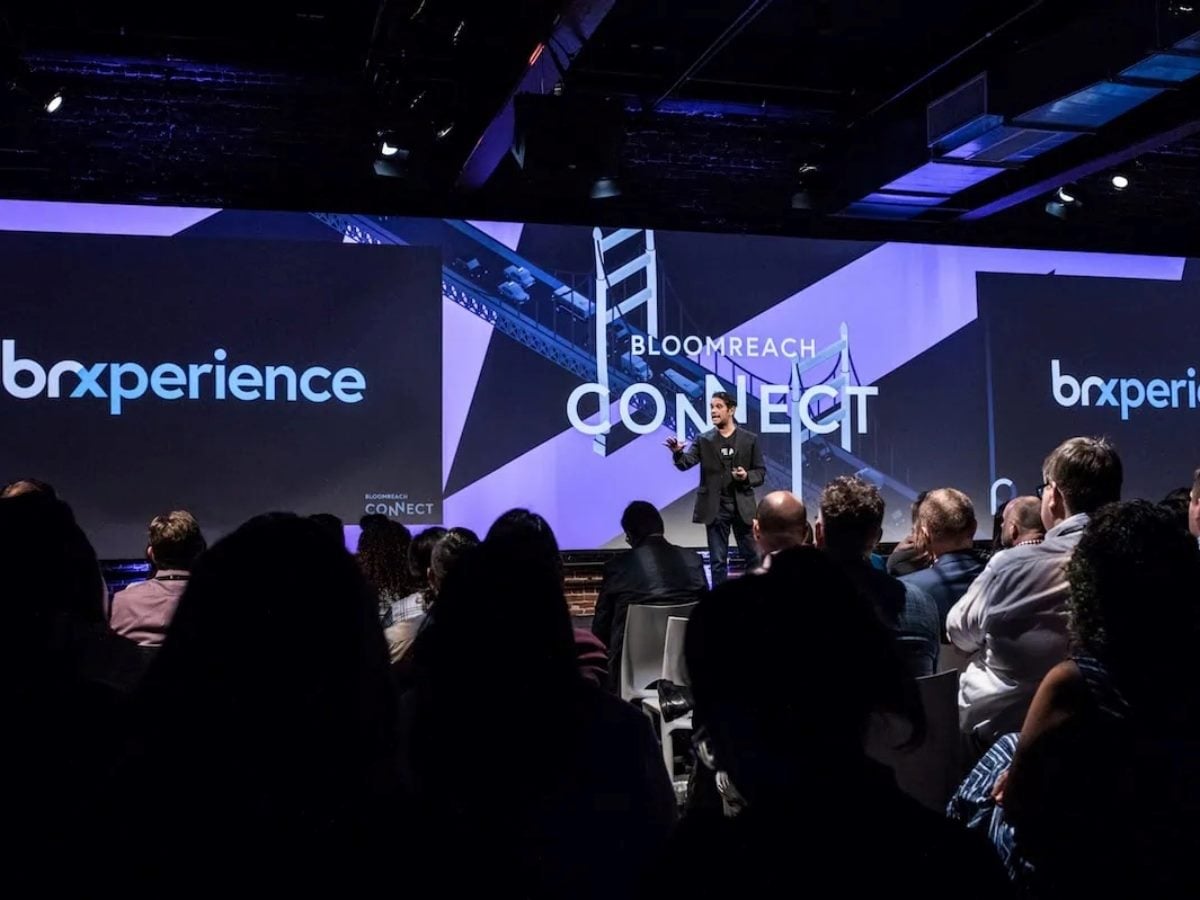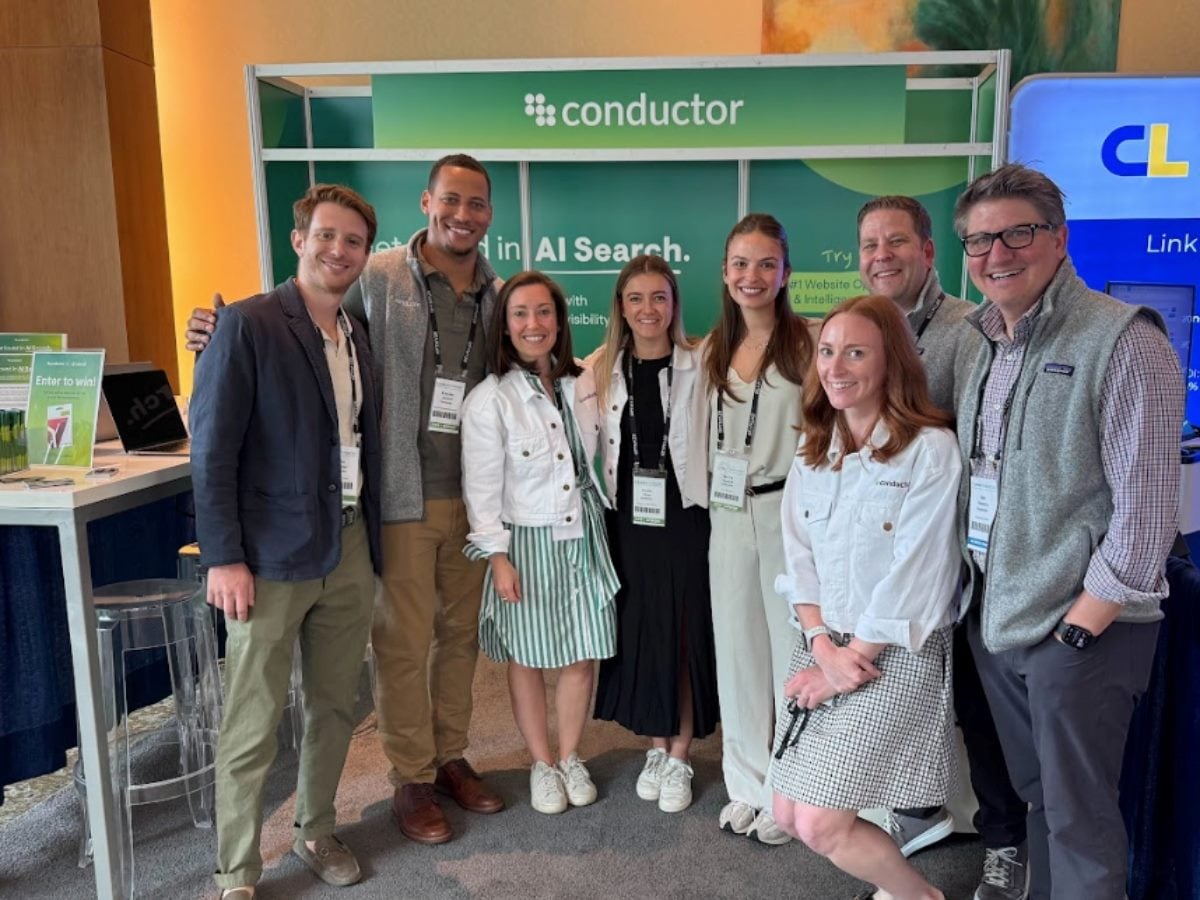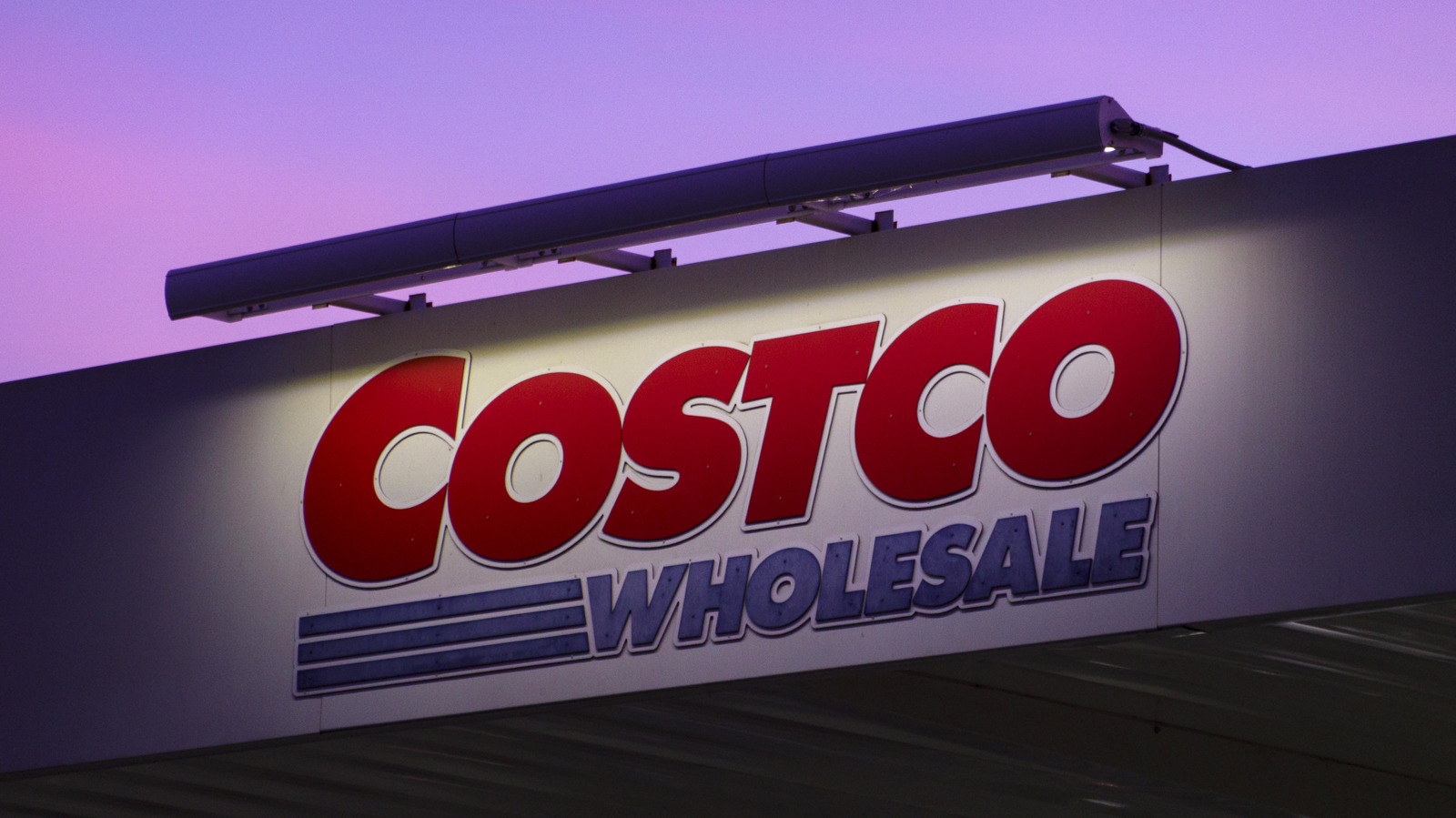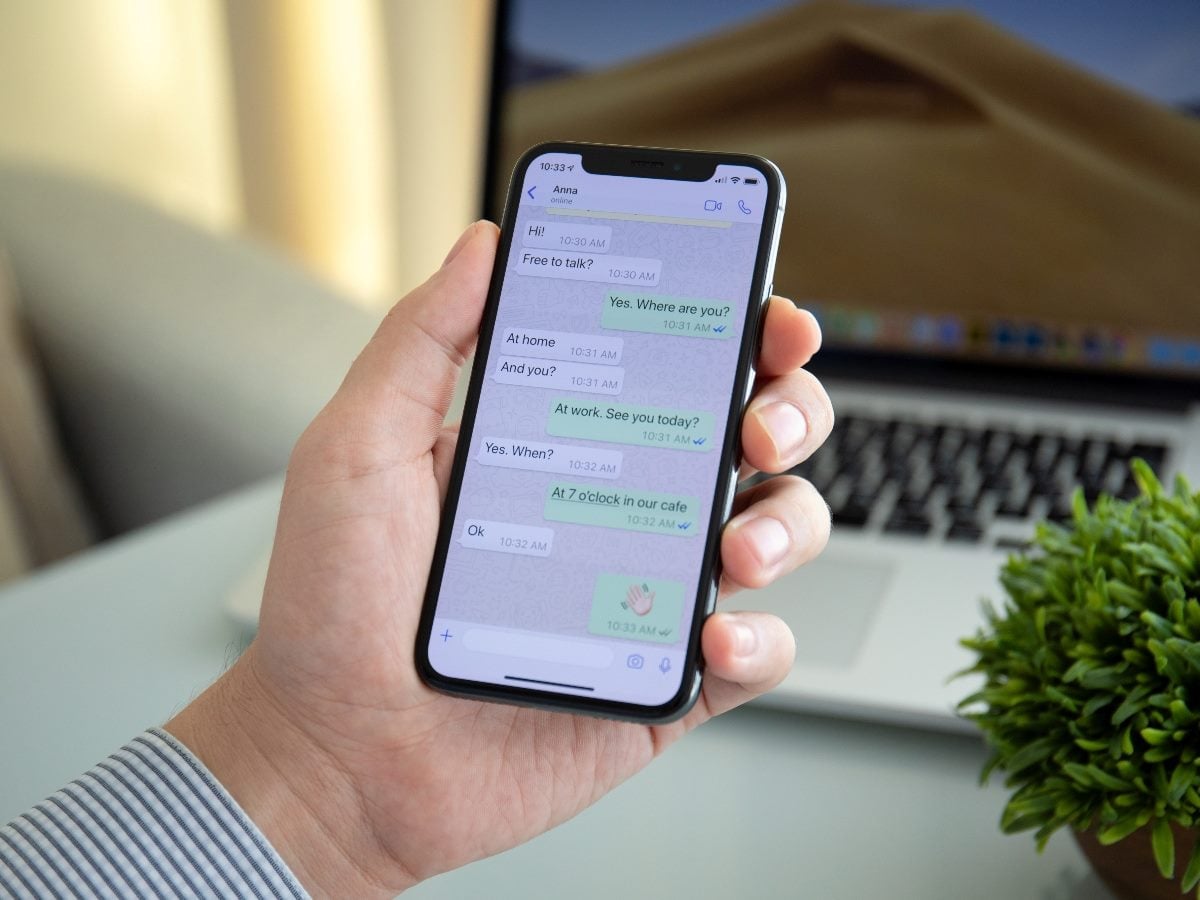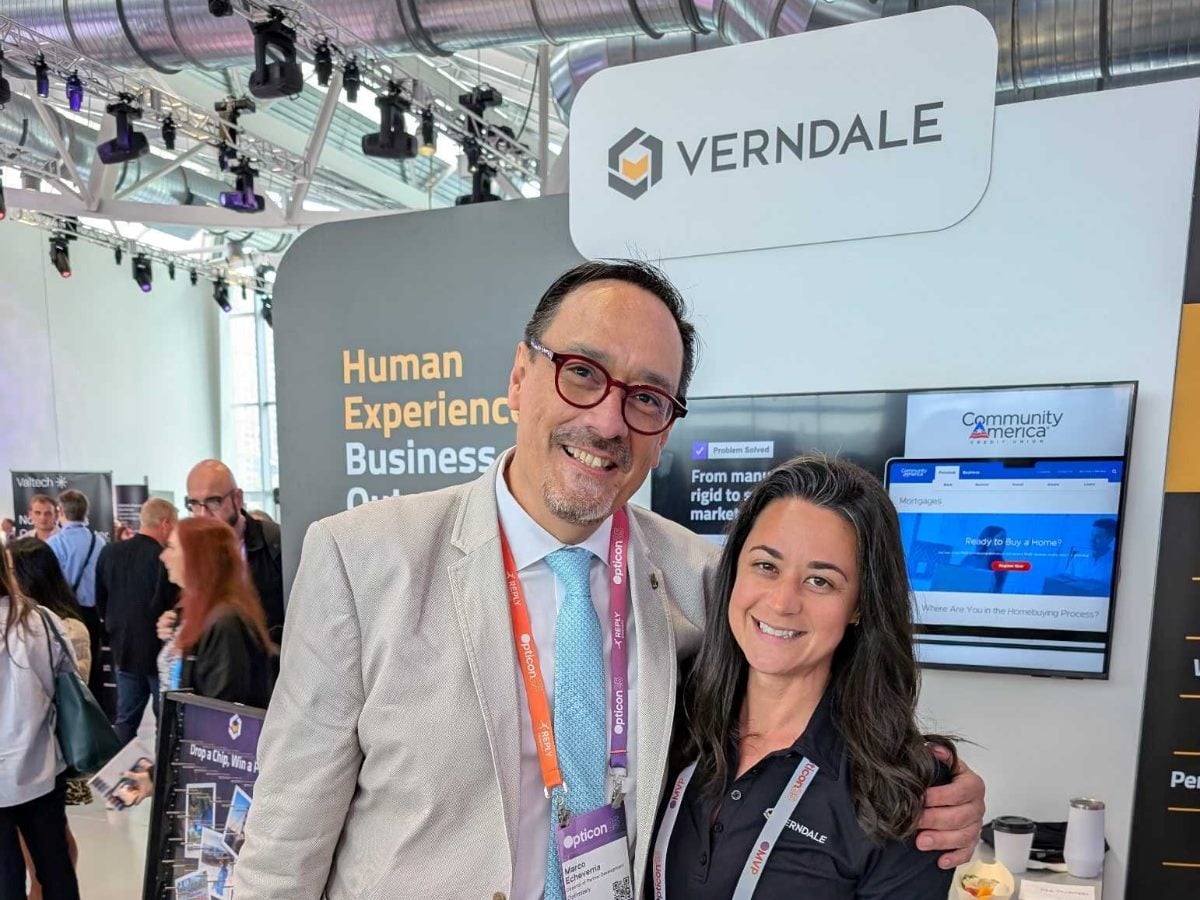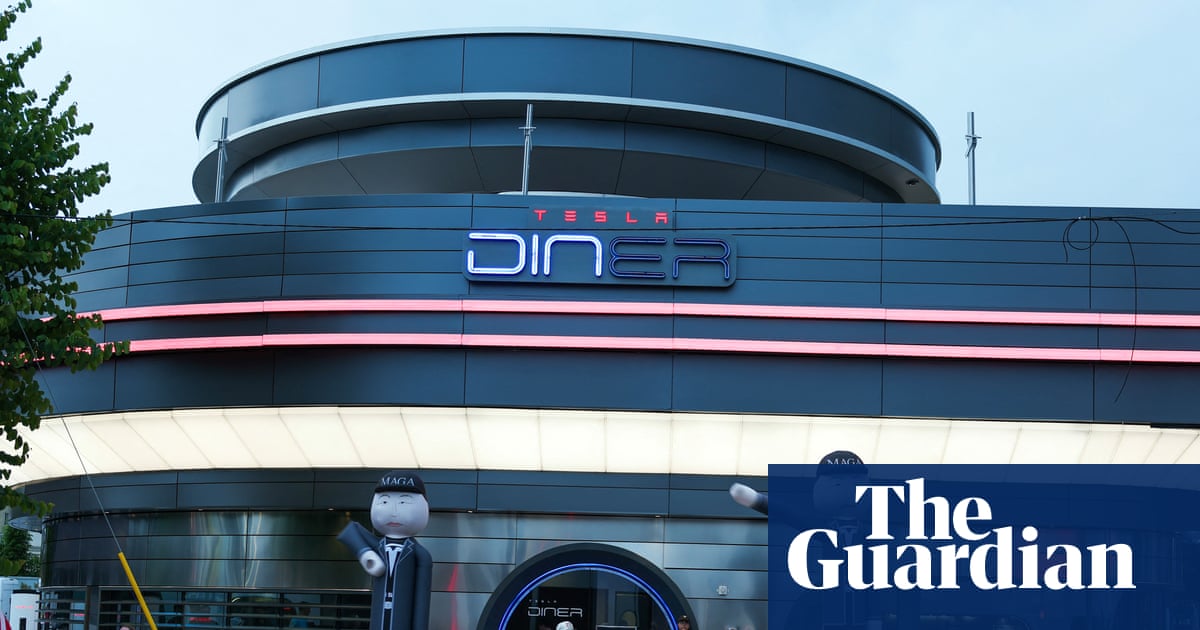#customer-experience
#customer-experience
[ follow ]
#marketing-leadership #marketing #editorial-research #cmo-resources #research--editorial #starbucks #cmo
fromMarTech
1 day agoSee how leaders bridge the engagement divide by attending 'Engage with SAP Online' | MarTech
From the customer's perspective it felt like dealing with multiple companies wearing the same logo. Marketing sends a "We miss you!" email the day after a frustrating support call. Sales doesn't know the customer has already watched a demo. In-store purchase history is invisible to the ecommerce team. No continuity. No memory. No relationship.
Marketing tech
fromFortune
5 days agoAfter Nike and Kohl's, Elevance Health's CDIO Takes On Healthcare | Fortune
My past experience has been with large consumer brands; we're always focused on leveraging technology to transform brands and create delightful, personalized customer experiences. At Elevance Health, I'm trying to do the same thing.
Healthcare
fromFast Company
1 week agoDigital excellence can yield exceptional in-person experiences
I believed technology could reshape the jewelry industry entirely-changing how customers find pieces they love, personalizing their own designs, and reimagining the customer experience. We launched as a digital-first venture to do just that. Now, two decades into our pioneering digital journey, I've realized something surprising: Our most sophisticated online tools have actually made in-person interactions more valuable. I believe the brands leading the next wave of innovation aren't choosing between digital and physical. They're using digital excellence to help create meaningful in-person connections and lifelong brand affinity.
E-Commerce
fromFortune
1 week agoFor success in AI, avoid the 'efficiency trap'- and focus on trust instead | Fortune
Trust has fast become one of the central questions in every serious conversation about AI. Not capabilities. Not efficiency. Trust. If customers don't trust how companies deploy AI, they'll walk away. If employees don't trust it, they'll disengage. If enterprises don't trust their AI providers, they won't adopt. A recent global KPMG study found that while two-thirds of people now use AI regularly, fewer than half say they're willing to trust it.
Artificial intelligence
Food & drink
fromTasting Table
2 weeks agoThis Whimsical East Coast Grocery Store Is Worth A Visit - Tasting Table
Stew Leonard's is a Disney-inspired, entertainment-filled grocery store with animatronics, petting zoos, costumed characters, and theatrical layouts creating a destination shopping experience.
fromTechzine Global
2 weeks agoHow Cisco CX transforms customer experience with AI
Cisco CX maintains close collaboration with product development teams through systematic feedback mechanisms. When support teams identify patterns in product defects, or when adoption teams notice features that customers purchase but don't use, this intelligence flows back to engineering for correction or calibration. Pereira emphasizes that this feedback operates both pre-release and post-deployment. The CX organization participates in new product introductions to test and validate functionality before shipping. Then, the organization continues monitoring adoption patterns and support ticket trends after products reach customers.
Artificial intelligence
fromMarTech
3 weeks agoWhy context matters more than data in personalization | MarTech
While those questions matter, the secret sauce is understanding the context behind a person's interaction with your brand at a given moment. A frequent traveler might visit an airline's website one day to research a family vacation. The next time they see, they might be booking a flight for work. Their attitudinal profile hasn't changed, but what their context - and therefore what they want from you - has.
Marketing tech
from24/7 Wall St.
3 weeks agoFrom Frustration to Respect: What Car Dealerships Actually Get Right
For years, car dealerships had a terrible reputation. Pushy sales tactics, confusing pricing, and long hours spent negotiating made the entire experience feel more like a battle than a purchase. Like many buyers, I assumed that avoiding dealerships altogether was the smartest way to buy a car, especially as online platforms and direct-to-consumer models gained popularity. Over time, however, my perspective began to shift.
Cars
Artificial intelligence
fromBusiness Insider
3 weeks agoMicrosoft's new commercial CEO is making changes to his top ranks, internal memo shows
Judson Althoff promoted Deb Cupp to EVP and chief revenue officer of global enterprise sales to manage strategic accounts and refocus leadership on AI strategy.
fromThe Drum
1 month agoTo elevate the B2B customer experience, partner with a content agency
Time and time again, we hear that modern B2B buyers have quickly adapted to online buying habits that emerged during the pandemic. You don't have to search far to find an article that references the increased number of touchpoints in a B2B sale . B uyers are self-directing their experiences throughout the customer journey and are confident they can engage with sales teams when they are ready.
Marketing
fromVue.js Jobs
1 month agoPrincipal Software Engineer at taxwell - VueJobs
Taxwell helps everyday Americans get every tax advantage they deserve by finding credits and deductions they never even knew existed. Our tax preparation software offers easy guidance and ensures your maximum tax refund. We strive to build a team of like-minded experts in both tax and technology who align with our brand purpose, are advocates for our customers and have a fresh, non-traditional approach to the tax industry.
Software development
fromLondon Business News | Londonlovesbusiness.com
1 month agoNearly half of UK customers say they've suffered poor customer service: Here's how to change that - London Business News | Londonlovesbusiness.com
Customer service in the UK has a problem. According to recent survey data, almost half of UK customers have experienced poor customer service over the past year. That's not a minor data point, but rather a warning sign. Long wait times, unhelpful responses, and automated loops that dead-end are just the beginning, and they erode customer trust quickly. While many businesses have invested heavily in digital tools and AI to help address these problems, that comes with its own drawbacks.
UK news
fromThe Drum
1 month agoJudgeGill works with Start Creative for Russian retail job
"Working with Start JudgeGill on retail stores concepts and communications guidelines has already delivered great results for MTS, such as the launch of the new MTS flagship store in Moscow. The key focus of our retail development is to provide best-in-class customer experience through personalized service and better tailored products, including exclusive devices bundled with applications developed by MTS," said Mikhail Gerchuk, vice president and chief commercial officer at MTS.
fromThe Business of Fashion
1 month agoHow Integrated Technology Is Reshaping Retail Operations
The technology underpinning retail operations is under scrutiny in 2026 as fashion executives look to streamline systems with the aim to unlock efficiency, cut costs and meet consumer expectations for speed and personalisation in the shopping journey. At the retail event Lightspeed Edge on 12 January, Lightspeed - the unified point-of-sale (POS) and payments platform for SMEs such as Apricot Lane Boutique and Neal's Yard Remedies - convened industry leaders to explore the strategic imperative for integrated technology ecosystems over siloed systems.
E-Commerce
fromSocial Media Examiner
1 month agoWhen Customers Create More Customers: Creating Superfans : Social Media Examiner
Marketing generates attention, qualifies prospects, and creates excitement. But it doesn't matter how amazing your marketing campaign is-if someone tries your product and feels disrespected, encounters rudeness, or finds it doesn't live up to expectations, they won't come back, no matter how clever your next campaign is. Customer experience delivers on the promises marketing makes and creates continuity that lasts. Every touchpoint from pre-purchase to post-purchase provides evidence that people use to shape how they feel about you.
Marketing
Artificial intelligence
fromSocial Media Examiner
1 month agoThe Future of AI and Marketing: What's Coming and How to Prepare : Social Media Examiner
AI agents are autonomous virtual workers that sense, decide, act, and learn to automate complex workflows and reshape customer journeys, increasing value of human experience.
Marketing tech
fromDigiday
1 month agoRetail leaders at Target, Lowe's and more on the AI investments they're plotting for 2026
Retailers are rapidly integrating AI across departments to improve customer experience, measurement, curation, inventory planning, and campaign performance while increasing AI investment.
Marketing tech
fromDigiday
1 month agoRetail leaders at Target, Lowe's and more on the AI investments they're plotting for 2026
Retailers are rapidly adopting AI across functions, increasing investments and using cross-department deployments to improve measurement, customer experience, inventory, pricing, and operations.
fromTearsheet
1 month agoThe Quarterly Review: Miki Van Cleave makes design a cultural expectation at Chase through process optimization and knocking down silos - Tearsheet
Notes from the desk: Welcome to this month's Quarterly Review and a new year! The Quarterly Review is one of the only media pieces that allow readers to track improvements through time. It's a chance for the industry to learn about what goes on behind an FI's four walls and how leadership manages their priorities.And a review mandates a check-in, as I like to say, so enjoy reading about how the exec in the hot seat today overcame challenges, and brought her vision to life.
UX design
fromFast Company
2 months ago7 CEOs share their New Year's resolutions
My resolution next year is to climb a tough peak in the Chamonix Valley in France. The 'why' is because it's been on my list for 15 years, and it's overdue. The 'how' is a detailed set of logistical, physical, mental, and family preparations.
Business
fromLondon Business News | Londonlovesbusiness.com
2 months agoFive strategic priorities for CEOs investing in customer experience technology - London Business News | Londonlovesbusiness.com
Customer experience technology has a habit of reappearing on leadership agendas every few years. Not because it suddenly feels exciting again, but because something quietly stops working. Customers complain more. Staff spend too much time chasing information. Decisions get made on partial data. What has changed recently is the pressure coming from multiple directions at once. Expectations are higher, patience is lower, and automation has moved from back office efficiency to front line interaction.
Marketing tech
fromBusiness Matters
2 months agoWhy hybrid-service models are the future for business in 2026
Providing great service has always mattered. Doing it brilliantly and consistently, is where things become hard, particularly for SMEs juggling growth, limited resources and rising customer expectations. At Moneypenny, we exist to solve that challenge. By combining unrivalled people and smart AI, we represent businesses seamlessly, delivering exceptional conversations that protect reputation and drive growth. That mission has never been more relevant.
Artificial intelligence
[ Load more ]





